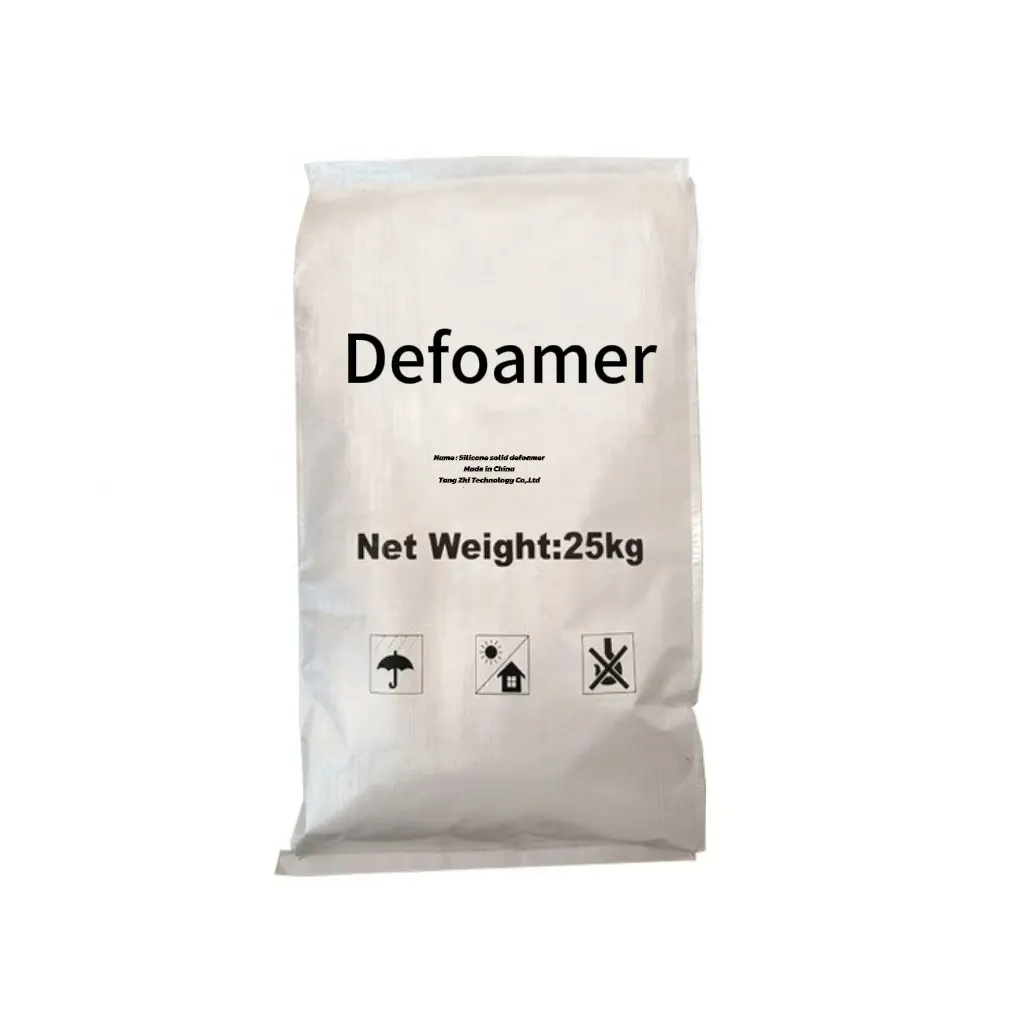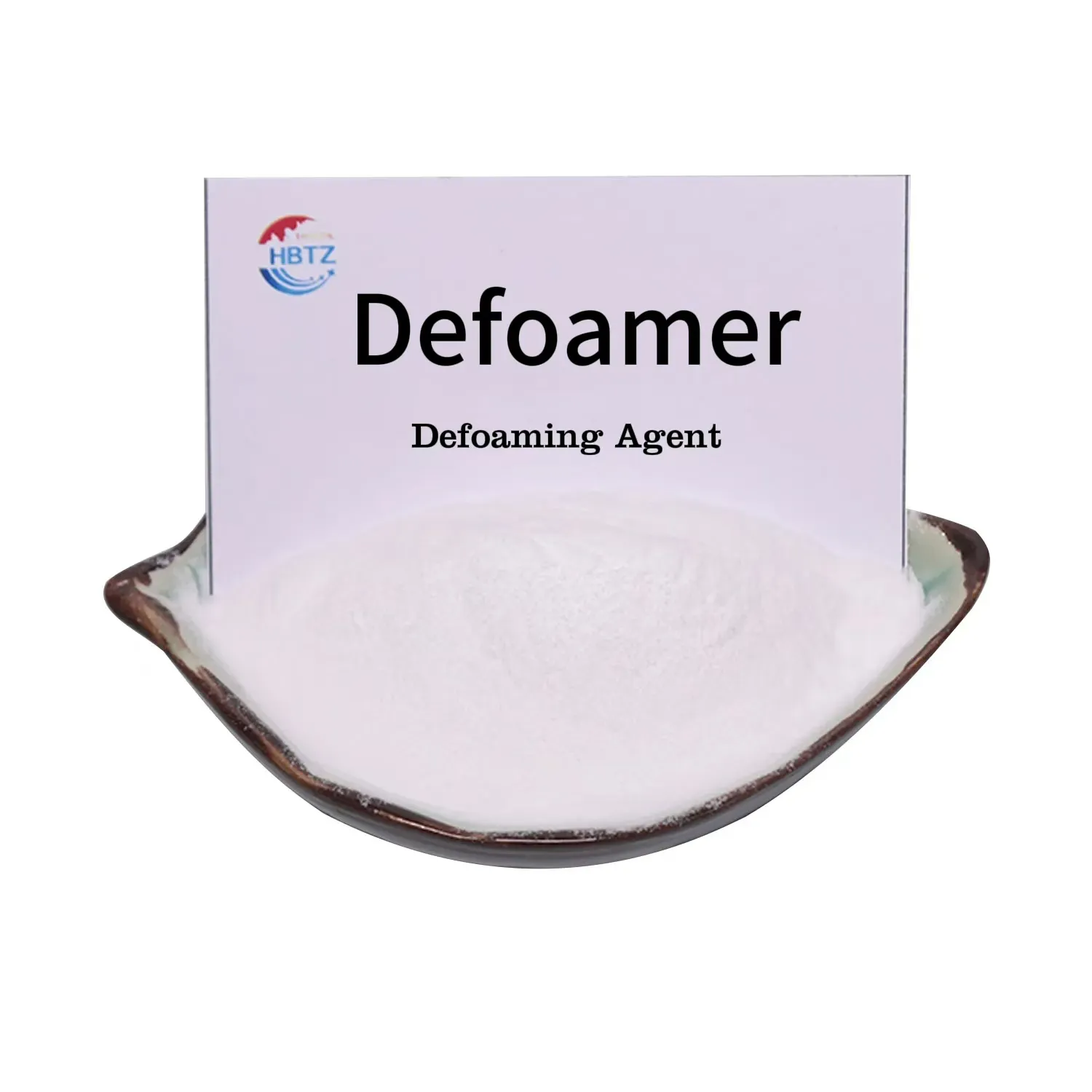In the last decade, the antifoam and defoamer industry has undergone a remarkable transformation, thanks to advanced material science, automation, and fast-evolving industrial needs. Antifoam and defoamer technologies, consisting mainly of specialty chemicals formulated to eliminate or prevent foam, have become indispensable across diverse industrial sectors. This article provides a comprehensive overview of their technical landscape, industry direction, critical application scenarios, major antifoaming agents and their parameters, as well as an in-depth introduction to key products of Hebei Tangzhi Technology Co., Ltd.


Industry Trends: Antifoam and Defoamer
According to SpecialChem Industry Reports, the global market for antifoam and defoamer is expected to grow at a CAGR of 4.7% from 2024–2030, driven largely by demand in manufacturing, food processing, water treatment, paper & pulp, paints & coatings, and pharmaceuticals. The increasing focus on process efficiency, eco-friendliness, and product purity has compelled industries to seek more innovative and effective anti foaming chemicals and antifoaming chemicals, including water-based, silicone-based, and EO/PO polymer-based agents.
The technical requirements for antifoam and defoamer continue to evolve. End-users demand not only rapid foam knockdown but also persistence, compatibility with process chemicals, low odor, absence of hazardous substances, and increasingly, full compliance with FDA, EU, and REACH regulatory requirements (Chemistry World).
Technical Parameters: Classification, Performance & Composition
The performance of antifoam and defoamer hinges on their base formulation—each suited for distinct industrial and chemical environments. Below, we organize the antifoaming agents list with common chemistries and parameters.
| Antifoaming Agent | Chemical Type | Main Component | Key Properties | Typical Applications |
|---|---|---|---|---|
| Silicone Defoamers | Polysiloxane-based | Silicone oil, silica | Rapid foam suppression, high stability | Pulp & Paper, Chemical Processing, Paint |
| EO/PO Copolymer Defoamers | Polyether-based | Ethylene oxide/Propylene oxide | Excellent dispersibility, non-toxic | Food Processing, Pharmaceuticals |
| Mineral Oil Defoamers | Hydrocarbon-based | Mineral oil, fatty alcohol | Cost-effective, persistent effect | Textile, Metalworking Fluids |
| Water-based Defoamers | Aqueous dispersion | Polyglycol, silica, water | Eco-friendly, food contact safe | Water Treatment, Fermentation |
| Organic Defoamers | Fatty acid esters | Triglycerides, oleic acid | Biodegradable, low VOC | Agriculture, Food & Beverage |
Product Focus: Defoamer (Defoaming Agent)
Defoamer (Defoaming Agent) from Hebei Tangzhi Technology Co., Ltd. is an advanced auxiliary agent designed to efficiently eliminate foam generated during material processing. Leveraging the superior anti-foaming characteristics of silicone oil, this product exhibits exceptional thermal stability, chemical inertness, and broad compatibility across industrial systems. The agent remains a non-volatile oil at ambient temperature, with ultra-low solubility in water, oils, and most solvents, ensuring persistent performance during challenging manufacturing operations.
Silicone-based antifoam and defoamer solutions, such as this, have a proven track record in controlling undesirable foam in harsh thermal, chemical, or biological environments. This product aligns with modern demands for high performance, sustainability, and regulatory compliance. Visit the product page at https://www.tangzhihpmc.com/defoamer-defoaming-agent.html
| Parameter | Unit | Typical Value | Testing Method |
|---|---|---|---|
| Active Content | % | 30–35 | GB/T 26527 |
| Specific Gravity (25°C) | g/cm³ | 0.97–1.05 | GB/T 4472 |
| pH (1% Solution) | — | 6.0–8.0 | GB/T 9724 |
| Antifoaming Time | sec | <15 | ISO 696 |
| Persistence | min | 45 | Internal Lab |
| Viscosity (25°C) | mPa·s | 800–1500 | GB/T 5561 |
Applications: Where Antifoam and Defoamer Matter
- Pulp & Paper: Foam in white water, stock preparation, and coating processes hampers quality and production speed. Silicone- and mineral-based antifoam and defoamer solutions are vital (Papermaking Process).
- Wastewater Treatment: Aeration and recirculation foster foam, impacting bio-reactor efficiency. Fast-acting, low-toxic antifoaming chemicals are critical.
- Paints & Coatings: Foam during mixing or application causes surface defects; anti foaming chemicals enable smooth finishes (European Coatings Journal).
- Food & Beverages: Fermentation, bottling, emulsification—all demand food-grade antifoam and defoamer to maximize yield, safety, and final product clarity.
- Oil & Gas: Drilling mud, separation tanks, and refining require robust and persistent anti foaming chemicals.
- Metalworking: Machining coolants and cutting fluids are prone to foam; the correct antifoaming chemicals optimize cooling and extend tool life.
- Textiles & Detergents: Defoaming controls sudsing and ensures uniform dyeing and cleaning (Textile Today).
Product Advantages of Tangzhi’s Defoamer (Defoaming Agent)
- Broad Chemical Inertness: Non-reactive with most process chemistries.
- Thermal Stability: Performs from -20°C to 280°C without volatilizing or deactivating.
- Fast Knockdown & Persistence: Rapid foam control (within 15 sec), long-lasting effect (over 45 min in typical systems).
- Low Odor, Non-toxic: Safe for applications in food, pharma, and sensitive formulations.
- Highly Dispersible: Mixes seamlessly with aqueous and oily systems alike.
- Regulatory Compliance: Compliant with FDA 21 CFR, EU FCM, REACH for a range of grades.
Frequently Asked Questions & Technical Terms
- 1. What is the distinction between antifoam and defoamer?
- Both terms refer to chemicals used for foam control, but "antifoam" generally prevents foam formation, while "defoamer" targets breakdown of existing foam. Most commercial products provide dual action (SpecialChem).
- 2. Which is more effective: silicone-based or EO/PO-based antifoaming agents?
- Silicone-based agents deliver rapid foam knockdown and broad chemical compatibility, whereas EO/PO copolymers excel in food, pharma, and low-residue scenarios. Selection depends on process demands.
- 3. How is Active Content measured in antifoam and defoamer?
- Usually via gravimetric or solvent extraction tests. GB/T 26527 is a standard Chinese method.
- 4. Are all antifoaming chemicals safe for food contact?
- No, only agents with specific FDA/EU approval and extremely low toxicity/odour are considered food-grade (Food Safety Magazine).
- 5. What are typical installation standards for online defoamer injection systems?
- Industries follow standards such as ASTM D3519 (for water-based systems) and ISO 696, focusing on metered dosing, agitation, and anti-shear placement for optimal dispersion.
- 6. What is “Persistence” in defoamer performance?
- It is the duration the agent maintains low foaming after knockdown, typically measured in minutes.
- 7. Are Tangzhi's antifoam and defoamer products compatible with bio-based process water?
- Yes. Their silicone technology is designed for high bio-compatibility, minimal biocide impact, and low VOC, making them suitable for fermentation, food, and pharmaceutical processing.
Expert FAQ on Antifoam and Defoamer Solutions
Why Choose Hebei Tangzhi Technology Co., Ltd.?
- Over 15 years of expertise in antifoam and defoamer R&D, production, and global supply.
- ISO 9001:2015 certified quality management system.
- Full technical support from laboratory optimization to industrial trial and troubleshooting.
- Highly customized solutions for water, oil, and specialty process environments.
- Transparent documentation. Every batch is traceable and validated to global standards.
- Responsive English-speaking support: admin@tangzhicellulose.com or WhatsApp +86-15032625168
- SpecialChem: Antifoams & Defoamers Marketplace
- European Coatings Journal – Antifoams & Defoamers in Paints and Coatings
- Chemistry World – Regulatory Trends for Antifoams/Defoamers
- Textile Today – Antifoam & Defoamer Applications in Textile Industry
- Food Safety Magazine: Antifoam Use in Food Processing
- Papermaking Process – Defoamer Use in Paper and Pulp
For further technical details, real-time assistance, and quotations on antifoam and defoamer solutions, please connect with Hebei Tangzhi Technology Co., Ltd. via admin@tangzhicellulose.com, phone +86-15032625168, or visit the official website: www.tangzhihpmc.com






















